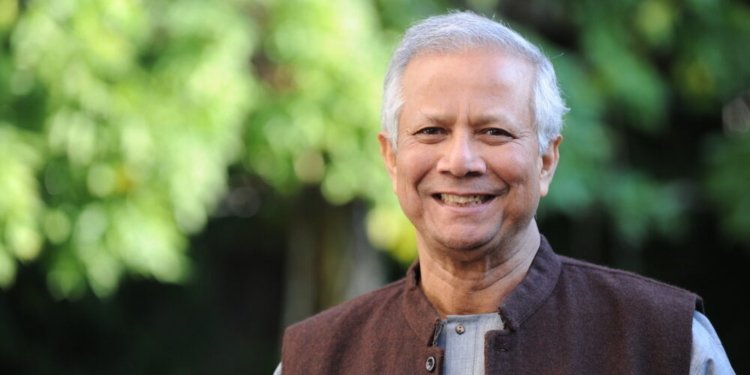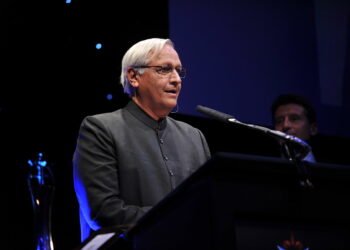Muhammad Yunus, a visionary social entrepreneur from Bangladesh, is renowned for his groundbreaking work in poverty alleviation. He is the founder of Grameen Bank, the pioneer of microcredit, and a proponent of the concept of social business. This article delves into the life and work of Muhammad Yunus, highlighting his contributions to global efforts to combat poverty.
Early Life and Background
Born in 1940 in Chittagong, a coastal city in Bangladesh, Yunus grew up witnessing the harsh realities of rural poverty. His academic pursuits led him to prestigious institutions, including Vanderbilt University and the Massachusetts Institute of Technology (MIT). However, it was during his tenure as an economics professor at Chittagong University that his observations of rural poverty inspired him to take action.
The Birth of Grameen Bank
In 1976, Yunus founded Grameen Bank with a vision to provide financial services to the poor. The bank introduced the concept of microcredit, offering small loans to impoverished individuals, mostly women, to help them start small businesses. This innovative approach challenged conventional banking practices and paved the way for the financial inclusion of the poor.
Impact of Microcredit on Poverty
Yunus’s microcredit model had a profound impact on poverty reduction. By targeting women, Grameen Bank empowered them to become entrepreneurs, leading to improved household incomes and economic growth in rural communities. Studies showed a notable decline in poverty rates in areas where microcredit programs were implemented.
Expansion of Microcredit Globally
The success of Grameen Bank caught the attention of the international community, and Yunus’s microcredit model was replicated in various countries worldwide. However, the adaptation of microcredit faced challenges, with varying degrees of success. Despite these obstacles, Yunus remained committed to his vision of a poverty-free world.
Social Business and Yunus’s Philosophy
Beyond microcredit, Yunus championed the concept of social business, where businesses are driven by the objective of addressing social problems rather than maximizing profits. He established successful social businesses in various sectors, including healthcare and renewable energy, demonstrating that business can be a force for good.
Criticisms and Controversies
Yunus’s work also faced criticisms and controversies. Some critics raised concerns about the impact of microcredit on overindebtedness, while others questioned the sustainability of social businesses. Additionally, the handling of Grameen Bank’s leadership transition sparked debates within the organization and the broader development community.
Yunus’s Contributions Beyond Microcredit
Apart from his work in microcredit, Yunus actively engaged in initiatives to improve healthcare and education in impoverished communities. His advocacy for sustainable development and social entrepreneurship earned him recognition on the global stage, serving as a voice for the marginalized.
Personal Reflections and Impact
Muhammad Yunus’s remarkable journey has inspired countless individuals and institutions. His tireless efforts in combating poverty have left lasting impressions, with lessons on perseverance, empathy, and innovation. Yunus’s legacy continues to motivate and guide the next generation of social entrepreneurs.
Conclusion
In conclusion, Muhammad Yunus’s pioneering work in microcredit and social business has transformed the way we approach poverty alleviation. Through his vision and dedication, he has shown that small actions can lead to significant social change. Yunus’s ideas and principles will undoubtedly shape the future of sustainable development and inspire generations to come.
FAQs
Q1: What is microcredit, and how does it work?
Microcredit refers to small loans provided to individuals, often with limited access to traditional banking services. These loans are used to initiate income-generating activities, helping borrowers improve their economic conditions. Repayment terms are designed to be flexible, considering the borrowers’ financial capabilities.
Q2: How did Muhammad Yunus come up with the idea of microcredit?
During his early days as an economist, Yunus observed the struggles of impoverished people in Bangladesh. Inspired by their resilience, he believed that providing small loans to these individuals could help them break free from the vicious cycle of poverty.
Q3: Has microcredit been successful in alleviating poverty?
Yes, microcredit has demonstrated success in reducing poverty levels, particularly in rural areas. By empowering women and promoting entrepreneurship, microcredit has led to improved living standards and economic growth in many communities.
Q4: What are social businesses, and how are they different from traditional enterprises?
Social businesses are organizations that aim to address social and environmental issues through sustainable business models. Unlike traditional enterprises, social businesses prioritize their social mission over maximizing profits.
Q5: How has Muhammad Yunus’s work influenced the global development agenda?
Muhammad Yunus’s work has had a significant impact on the global development agenda. His emphasis on social entrepreneurship and sustainable development has inspired policymakers, entrepreneurs, and organizations worldwide to prioritize social impact and tackle pressing global challenges.





